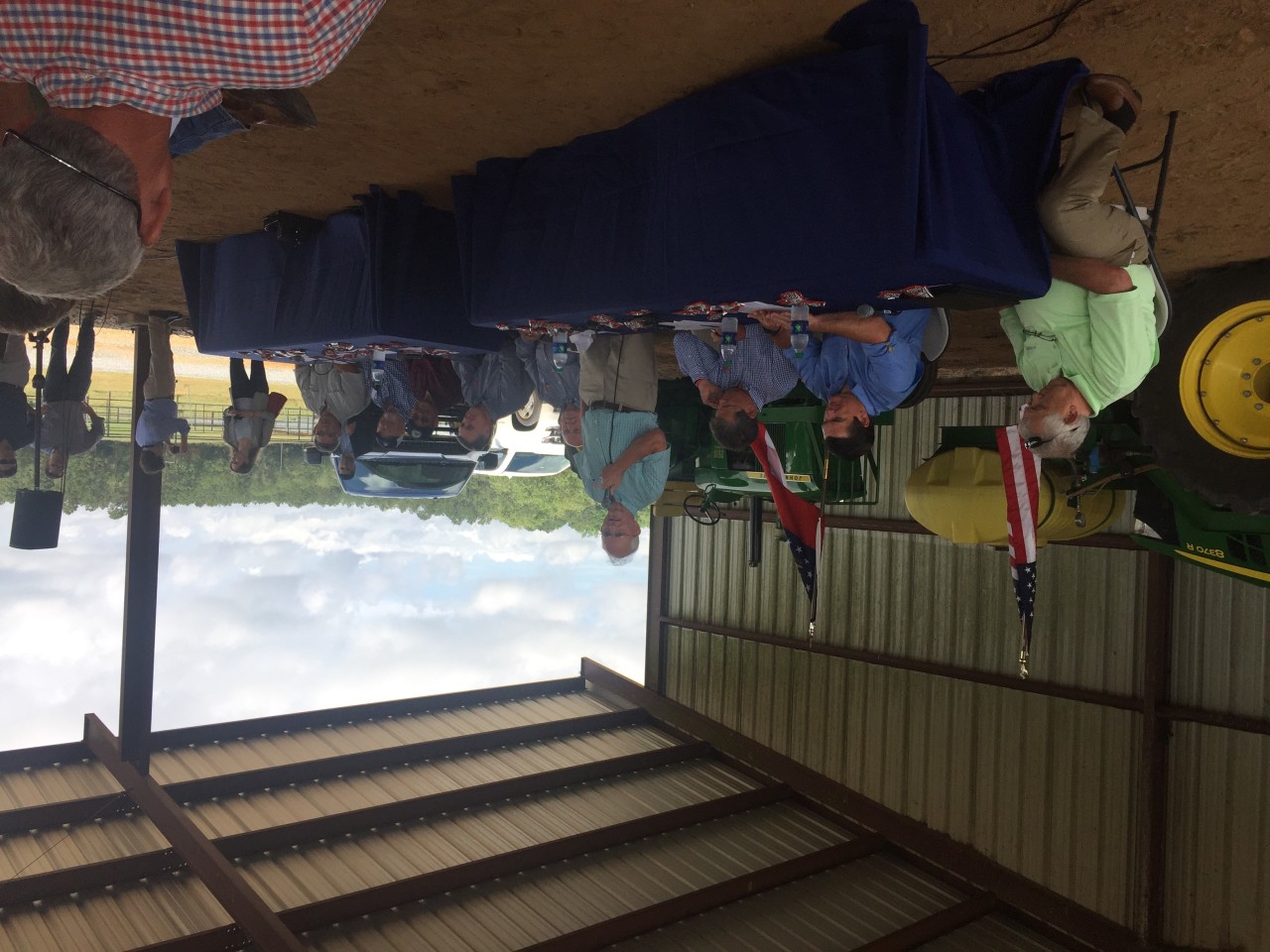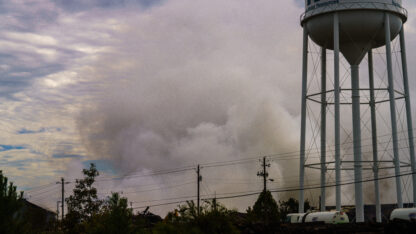Eight months after Hurricane Michael devastated Southwest Georgia and its agriculture industry, President Donald Trump signed a disaster relief package into law Thursday. A group of Georgia political leaders gathered with farmers in Doerun, Georgia, near Albany on Friday morning to celebrate but also, to apologize.
There was a breeze that helped with the gnats and a restrained but happy vibe.
Sen. David Perdue, though, didn’t strike a celebratory tone.
“I just want to tell you how much I appreciate your patience,” he said. “This is embarrassing and I apologize representing the United States Senate. This took eight months, and that’s ridiculous. The longest disaster relief that we’ve had in the United States was two months and it was Hurricane Sandy in 2013. And this took us eight months. And it wasn’t nothing but partisan politics.”
Agriculture Commissioner Gary Black, too, sighed in frustration over the past months of delays.
He quoted the adage, that Americans will do the right thing, after they’ve exhausted all other options. “That’s kind of where we are,” Black said. “There was a lot of things that were happening in the last few months, but now we have eventually done the right thing, and it is something to celebrate.”
Black said his department is ready to help distribute the funds after the federal government sends it down.
So what went wrong with the bill?
The package got delayed by the government shutdown, then a partisan debate over more money for Puerto Rico. Then there was debate over adding border security funds into the bill too.
“It should not have taken this long,” Secretary Sonny Perdue said. “Political games got played and that’s unfortunate, but it’s all behind us now and we’re going to execute and deploy this money as soon as possible.”
Secretary Perdue and Sen. Perdue both defended President Trump’s role in the negotiations and applauded him for his dedication to the cause.
“The president abdicated some of his strong positions…in order to ensure our farmers in Southwest Georgia,” Secretary Perdue said.
Republican Congressman Austin Scott, on the other hand, publicly called out the White House for its role in the delays. He said the whole ordeal felt personal, especially since he’d been there to support disaster relief for other states.
“And then when it was my district that needed it, to not be able to get the help in a timely manner it was extremely, extremely frustrating to me,” he said.
It’s made leaders like Perdue, Scott and Democratic Congressman Sanford Bishop look for a way to prevent this from happening again.
“We have got to work together to make sure we put in place some kind of reserve funds so we won’t have to have this kind of wait when planting seasons come, if and should this happen again,” Bishop said.
An emergency loan program administered by the USDA is another idea.
For now, farmers attending emphasized that the relief money won’t stay in their pockets. It’ll spread immediately across the region to everyone else who hasn’t been getting paid, either, such as seed and chemical companies nad landlords.
The Southwest Georgia economy is driven by agriculture.
“I talked to a farmer after the hurricane and he said I want to tell you, this is going to affect us down to the collection plate at our churches. And it has,” Dick Minor, who farms in Andersonville, said to the group.
So how much money is coming and when? About $3 billion was allocated for storm damage to spread across the country.
The Department of Agriculture now has to do the math, to figure out how to fairly divide it. Secretary Sonny Perdue said they would do it “as fast as we can,” but declined to provide a deadline.
“Yes it’s taken a while, but late is better than never,” said Greg Mims, who farms in Seminole County. He called it a “super day for South Georgia farmers.”
“Being a farmer, you can’t just sit down and wait. You have to go on in life. We’ve already got our crop planted. Half our growing season is almost up. If you sit around and wait on the government, we would not be able to function,” he said.
Now, he and other farmers emphasized, they just need rain. The area hasn’t had a good downpour in five weeks, and with many irrigation systems still broken from the storm, that rain is crucial.









